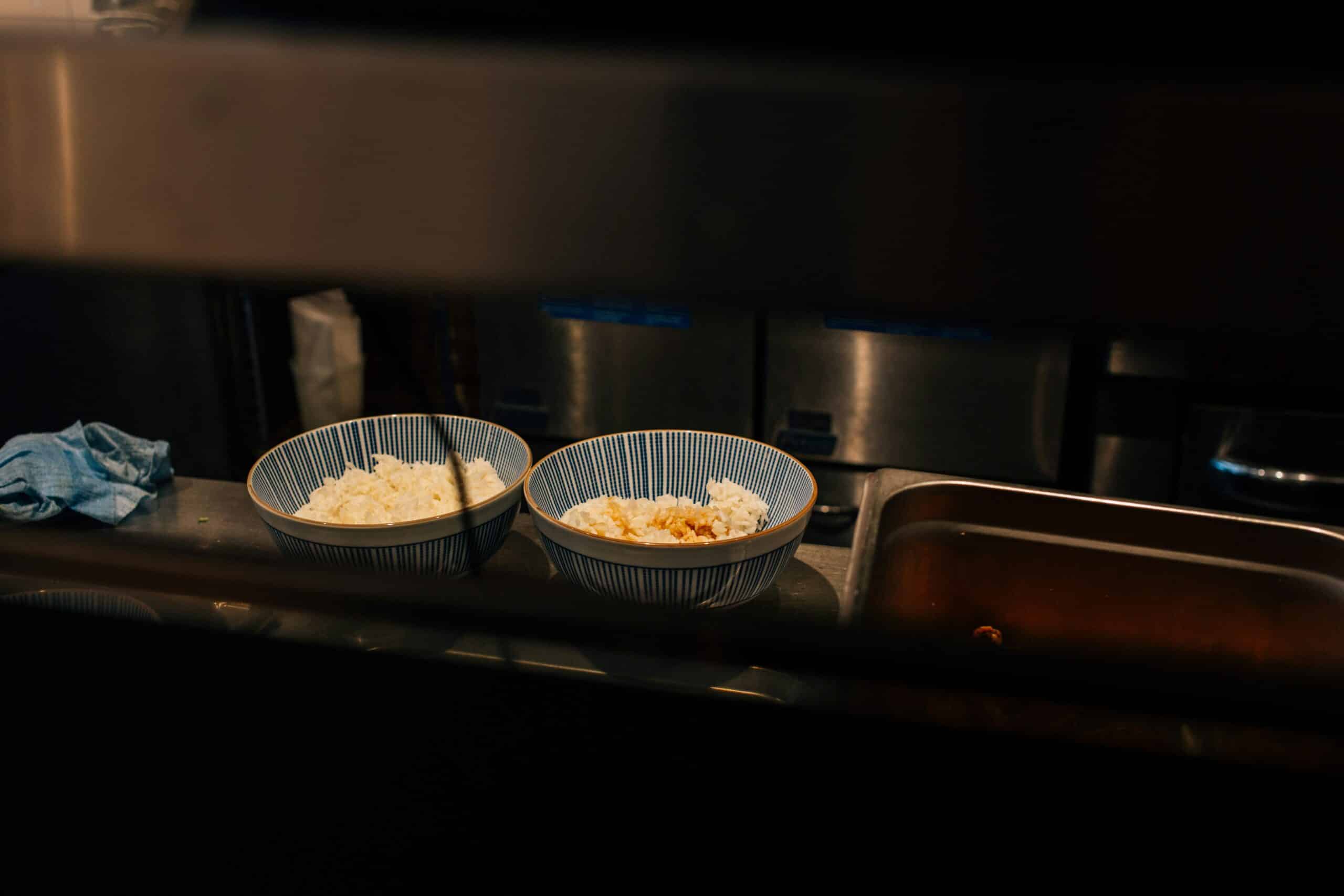
Here is a list of other remarkable, proudly Philippine made products that I discovered at Landers Arcovia.
I came across tiny bottles labeled Basimatsi, blended vinegars and condiments.
Kitchen Witchery is the maker of the Basimatsi line. The brand name is a derivative of our most beloved Philippine ingredients—bawang, sibuyas, kamatis and sili.
According to Winfred Tan, the idea of making vinegar blends was an accident. “While trying to make a universal spiced vinegar blend that would be used for everyday dipping, many samples were prepared. Since everyone’s palate was different, we ended up making and approving different varieties.”
Here’s a guide to Basimatsi and Winfred’s suggested usage and pairings.

Basimatsi #1—Suka Liso is a blend of three vinegars. Use this as a base for making vinaigrette or as your basic vinegar for any food preparation.
For fans of sour sinigang, add this variant to the stock, adjust the quantity to your liking. It surely spikes up the “asim!” It is ideal for paksiw na lechon and paksiw na isda, too.
Basimatsi #2—Suka Timplado infused with Philippine spices is a perfect match for fried dishes like tuyo, Vigan longganisa, fried chicken.
Basimatsi #3—Suka Minatamis is subtly sweet with a hint of molasses. Try making adobo with this. It is also highly recommended to pair it with inihaw na liempo or manok.
Basimatsi #4—Suka Sinalabat is ginger-infused. Use this as your base vinegar for any kinilaw recipe. It’s absolutely perfect!
Basimatsi #5—Suka Pinausukan has a smoky profile. Aromatic. Use this to make vinaigrette for a dressing with a distinct character.
Basimatsi #6—Suka Toyomansi was created for the younger set. It frees you from the task of mixing your own sawsawan. This goes well with lechon, lechon kawali and crispy pata.
Basimatsi #9—Labuyo Cerveza is a hot sauce that is brewed, aged and fermented. The process of making Basimatsi #9 was inspired by the actual beer-making process. It is their rendition of Sriracha. Works with pizza, pasta, tacos, marinades, steak, grill, chips, dimsum, and noodles.

Cheese snacks
My mom is 92 and to this day enjoys drinking regular Coke, eating chicharon, chips and cheese-flavored snacks of all sorts. Indeed she has a genetically blessed makeup.
When I brought her a tub of Cheezy Curls, she savored it. The curls are not salty. They’re crisp yet with a soft crumble and in general, milder in taste than your usual.
I love Pik a Pikel’s Pickled Mango (Burong Mangga) simply because it goes down fine. This is very close to what my own pickled mango recipe tastes like, a perfect balance of sweet and sour, a whisper of salt and crunchy to the bite!
Tony Nola Jr. started making pickles in 2011, after tasting burong mangga in Chinatown.
In his words, “It was love at first!” He found himself driving to Binondo frequently to get his supply. The commute over time became too stressful so Tony thought, why not make my own? A few years after, Sangkutsa Food Corp. was born and now produces Pik a Pickle Pickled Mangoes.
Serve it in place of regular achara, with anything grilled or fried. Or you can simply snack on the sliced mangoes from the bottle and enjoy it as is.
I love adding chopped burong mangga to my roasted eggplant salad, with chopped fresh manggang hilaw, onions, tomatoes and bagoong. The pickled mangoes give this ensalada a refreshing burst of flavor.

Guyabano leaf tea
An interesting find is the Guyabano Leaf Tea. It is for those who dare try something different. Not your usual, this drink is best served ice cold.
“We have always been passionate about promoting everything healthy that’s locally available,” maker Mike Atayde said.
When the opportunity arose for them to put a fruit processing plant in Palawan, primarily to process mangoes from surrounding farms, they thought it best to start planting guyabano.
“Guyabano has been mentioned in many articles and testimonials for its curative qualities,” he said.
Why the leaves? When dried, fermented and brewed, the leaves have a distinct taste that, Mike said, is even better than other tea drinks in the market today.
“We wanted others to enjoy its great flavor (not even considering its health benefits) because that is what’s generally important for the consumer: it has to taste good first.”
In February 2018 HG (Home Grown) Guyabano Tea Leaf Drink was introduced in the market. The drink has become a part of the one glass a day intake routine at the Atayde home.
“If there’s a drink that’s truly Filipino, the first of its kind that can give us hope, it’s HG Guyabano Tea Leaf Drink,” he said.













































